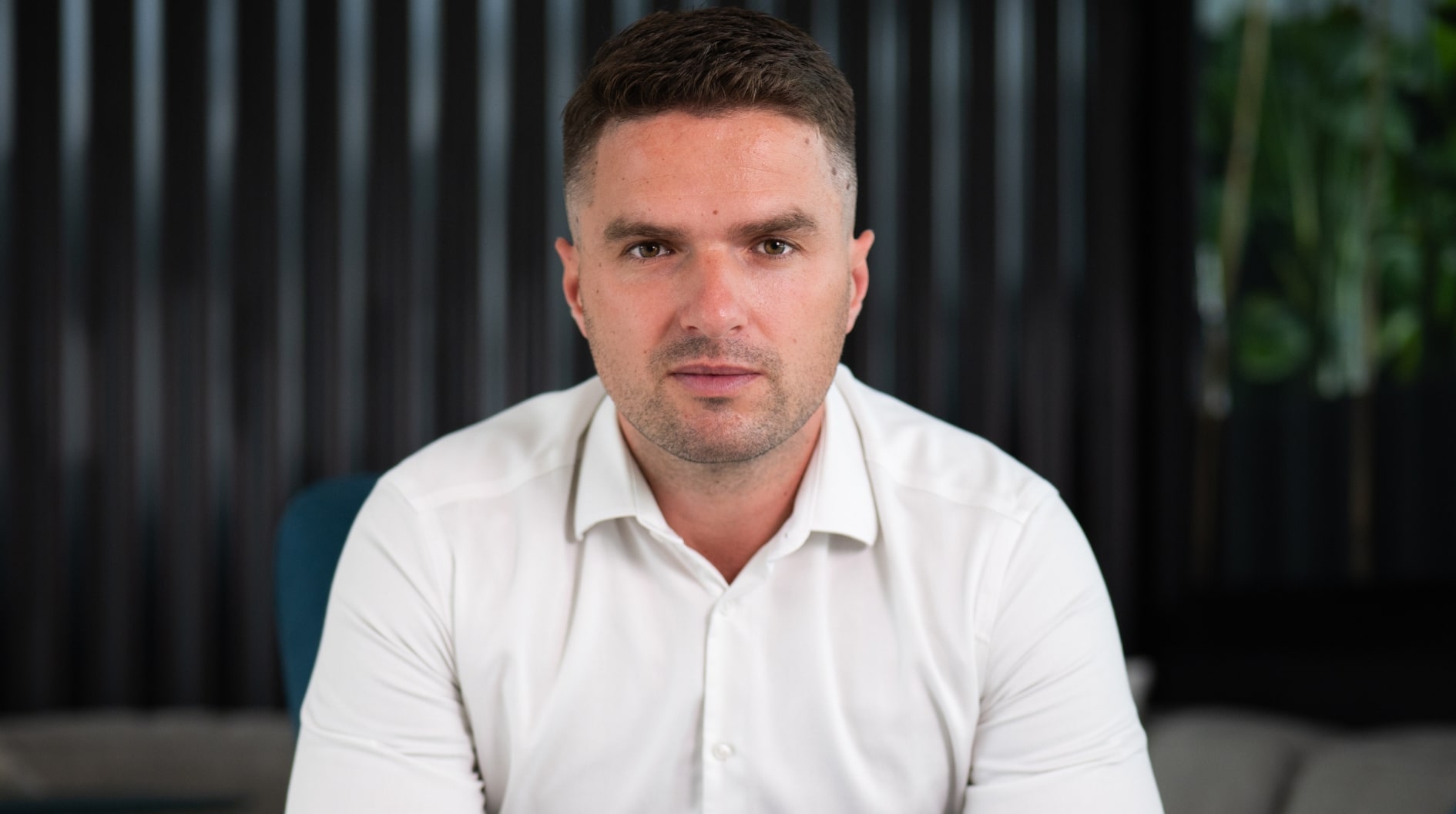
A good salesman saves time, for himself and the client. Even “no” is the result
He has years of experience in the world of sales and team management, which he now passes on to other entrepreneurs. But even he got burned in the beginning. “I ran a business while I was still in school and ended up in a seven-figure loss,” says Petr Bernadič. Although he is not a “paper” member of Clubco, you can sometimes meet him in Nupaky, where he prepares summer courses focused on business and leadership.
“A salesman is not an enforcer. A professional does not only look at the fact that he has to sell at all costs. He looks for whom his solution makes sense and helps the client make a decision – quickly and clearly. Even “no” is better than endless ‘I’ll think about it’,” explains Petr during the interview, while sipping tea from a Star Wars mug that is not missing in almost any of his videos. “First of all, it’s big – I hate small teacups. And I’m also close to science fiction and fantasy with their worlds and stories, which for me are not only about entertainment, but also about principles, values and deeper ideas that can be transferred to life and business.”
The age of pot sellers may be (hopefully) over, but the distrust of “those who offer something” persists in the Czech Republic. While in countries such as Spain or Italy, the trade profession is perceived as prestigious, in our country many still rather dishonor it and see no added value in it. “Multilevel, a sell-to-everyone approach, hasn’t helped. But that doesn’t work. Each product has its own target group,” he adds.
Learn to talk about what you do
Anyone can learn to sell, according to Petr. It depends on how much energy they put into it. The myth that sales is only for extroverts is not true. On the contrary – systematic, prepared salespeople with respect for the client are much more in demand today than those who rely only on charisma. “They are consistent, they know why things work, and they can improve. The charismatic ones don’t work on themselves as much, they are too sure of themselves. There are always new situations, new markets, new challenges. And when you feel like you’ve got it all down to 100%, I think that’s the road to hell. You stop learning and you get lazy.”
For introverts, preparation is key. It also helps to have visual, ideally interactive, materials ready. When working with tools like Prezi or Miro instead of a traditional presentation. What we often lack, according to Petr, is the ability to talk about what we do. “People feel they can talk about their business – until they have to say it out loud. It helps to practice: at home, with colleagues or perhaps at networking events where there is a safe environment and feedback.”
Alongside the art of expressing yourself, it’s good to understand context. It’s not enough to know the product in detail. It is more important to understand the person’s business, their needs and the impact of the solution. Also important is the ability to guide the client through the strategy step by step – from defining expectations to deciding what’s next. What the company can offer also has an impact on the business. “Today it is important to have well prepared documents, tools and support. A salesman can’t be a great copywriter, creative strategist, empathetic negotiator and AI expert at the same time; they can’t think and do everything themselves. The company should therefore leverage the strengths of the trader, but at the same time provide him with an environment in which he can be successful,” says Petr, noting that the financial side also plays an important role. “When a trader doesn’t have his needs covered, he gets stressed and drained, often making mistakes or acting unethically just to close a deal.”
First impression and personal brand or Don’t be an idiot
Work on how you impress your clients too. But not too much. First impressions are important, but they should be natural. “There is no need to be falsely positive or overly warm. If I walk up to a company director and start smiling excessively, it will come across as untrustworthy. It’s better to be naturally attuned, and more importantly get to the point quickly. Clients today don’t have time – they want to know what’s in it for them,” he explains, disapproving of the saying “our customer, our master”, as the relationship between client and supplier should be balanced, a partnership.
How big a role does the product or service play and who sells it? “If I sell a stupid solution, it won’t get results. Sometimes I would advise salespeople to turn their backs on certain products. If I sell something I don’t believe in myself, the customer will know it. On the other hand, even a great product needs a good strategy,” he says and agrees that a personal brand is also important. “People are increasingly buying from those they trust. If a retailer builds its reputation over a long period of time, doesn’t sell stupid stuff and behaves fairly, trust transfers to the products. Today, it is not uncommon for people to buy things just because they were recommended by someone they follow and respect. As I sometimes say, to run a successful business you just have to be cool in the long run and not be an idiot. Over time, the results will come.”
From fuckup to the mindset of a marathoner
He is not afraid to talk about failure, after all, he also performed at Fuckup Night in the ICUK in April. At twenty-four, he ended up with a business in the seven-figure loss. “It was an extremely challenging period. But it was also a turning point. I got clear on what was worth working on and who I wanted to work with.”
Working with his own mindset is key for Petr and he recommends it to others. “After my business failure, I needed to change my mindset. I used to operate very much in waves – big momentum, results, but no stamina. Through endurance sports such as longer runs and triathlon, I learned to do things consistently. Not just when I have the energy, but also when I don’t feel like it. I went from hating running to running 16 half marathons, three marathons and a half Ironman. And what you learn on the track carries over into business.”
Stay on course
Although Petr Bernadič is not a regular member of Clubco, his coworking space in Nupaky near Prague is a place he likes to return to – whether it’s for shooting content, meeting clients or the atmosphere. “It has everything you need – space, quiet, good coffee. It’s a great concept for those who don’t need their own office, but want a quality facility.”
In addition, he is preparing two two-day workshops for the summer, which will focus on the topics in which Petr most often helps his clients: business strategy and leadership.
“The business workshop is for those who want to learn new approaches, tools and technologies – and apply them directly to their business. The one on leadership then focuses more on leading young teams and modern ways of motivating them.”


The courses are accredited under the Ministry of Labour and Social Affairs’ “I’m on Course” initiative, so participants only pay around 18% of the cost, with the rest covered by the grant. “This is a great opportunity for smaller entrepreneurs who might not otherwise be able to afford similar training. It’s also a chance to get to know other entrepreneurs.” He also mentions that he is considering fall dates and a workshop designed specifically for Clubco members.
At the end of our conversation, we asked him what advice he would give to someone who is afraid of selling and feels like a bad salesman. “I would find someone to help me. Often people don’t see their value on their own. The ideal is to have people from different fields around you who share ideas and motivate each other. And that’s what coworking spaces like Clubco are absolutely perfect for – you can meet, have a coffee, discuss business and recharge your batteries.”



